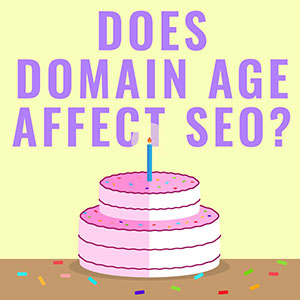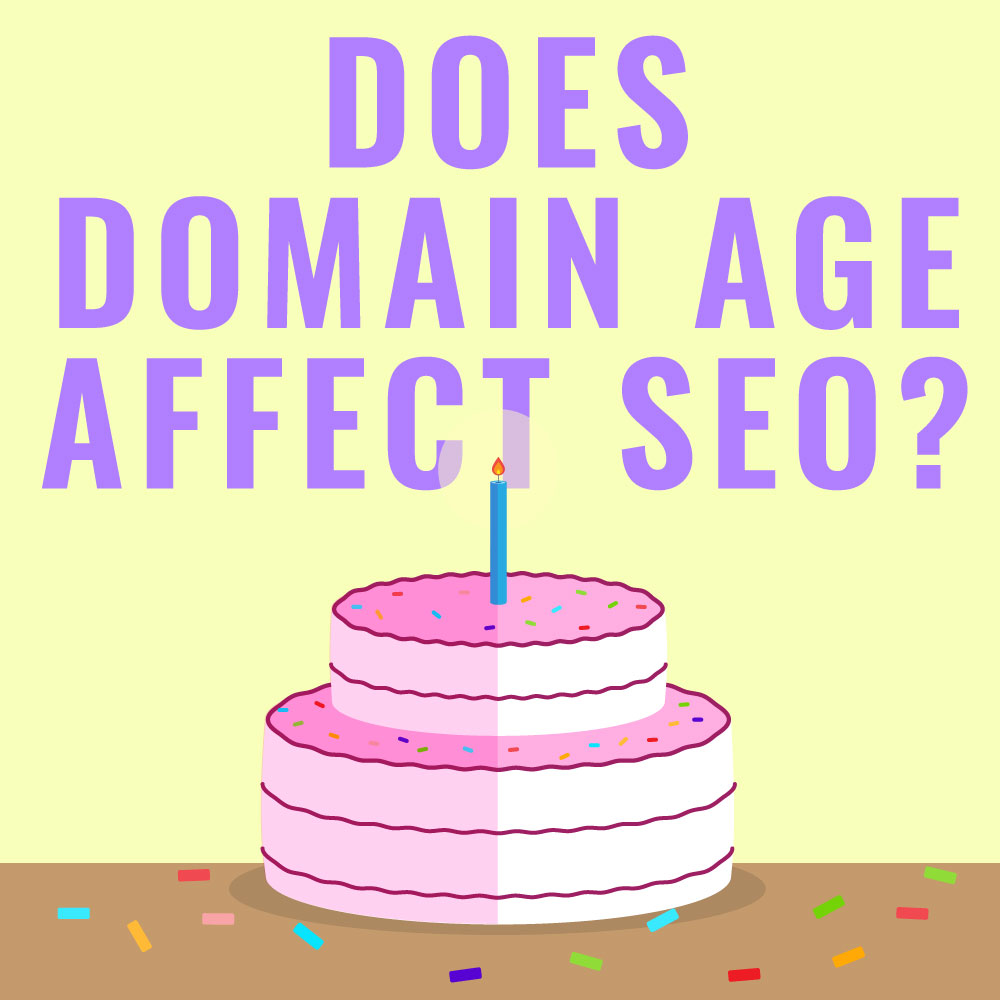After reading yet another article about this topic, I thought it was a good time to do a little digging, engage in some good old fashioned evidence based speculation and write about it myself.

The topic of aged domains has surfaced time and time again. People have long believed that having an aged domain helps in Google rankings, whilst the official Google stance is that no, it does not.
I decided to do what I always do when I have a see a new Google conspiracy theory – look at the Search Engine Results Pages (SERPs) and see with my own eyes.
For this analysis, I started by grabbing a few search terms, including highly competitive Australian search phrases which I got from this WordStream blog post. I also added a few of my own to capture a broader variety of search volumes and user intents.
Here is the final selection of search terms I landed on:
*Search volume numbers gathered from Google Ads Keyword Planner
Next, I took the top 50 results from all the above searches and made note of their respective domain ages by cross referencing it against Wayback Machine.
To ensure that my results were as consistent as possible, I made sure to adhere to the same rule-sets for all searches:
- All searches were made in incognito mode
- Google AU was used for all searches (google.com.au)
- Organic results only (no ad results)
- If present, any local map listings and featured snippets were excluded from the scraped results
- All searches were conducted once and all on the same day
Before we get to the results of the analysis, here is the necessary disclaimer:

- This analysis is purely focused on domain ages, and does not take into account any other onpage or offpage factors, such as onpage optimisation, backlink profile, anchor texts, etc.
- This analysis uses a very small dataset, and with enough time and resources it can be replicated on a larger scale (more search terms, using different country-specific Google domains, scraping top 100 results, etc.). So, if you want to take this and run with it then please do so and let me know!
- As we all know, correlation does not always equal causation! Any patterns found in this analysis does not equate to undeniable evidence, so take the information to expand on your own findings (and theories).
The Results
Average Domain Age by Page
So after collating all the scraped data, I averaged out all the domain ages by their respective pages (10 results for each page):
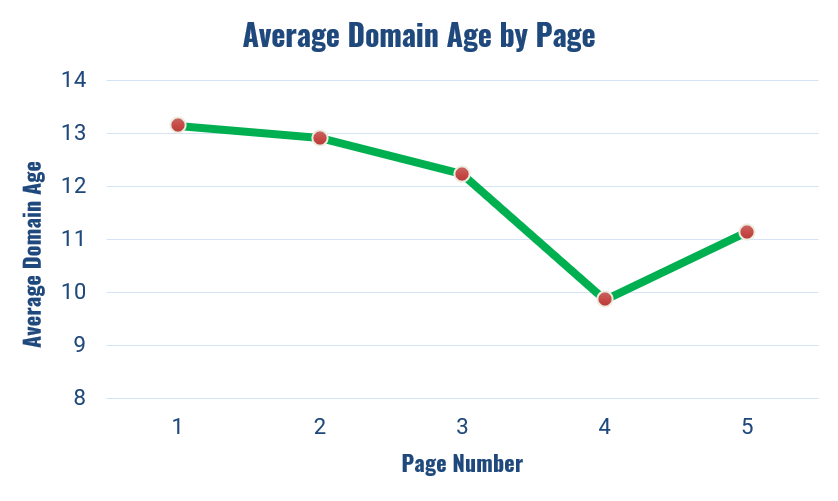
We can see the first four pages seem to follow a pattern of decreasing domain age, which then gets bucked when we hit page 5.
What’s interesting to note is how closely similar the average domain ages are between pages 1, 2 and 3.
Average Domain Age by Position
For this section I took all the average domain ages for the first 30 positions to see if there was a trend for domain ages by position in the SERPs:

From the outlook, there’s no evidence of a definitive pattern, except for some interesting drops in average domain ages at positions 10, 14 and 15.
Nothing stands out so far, so let’s get more granular…
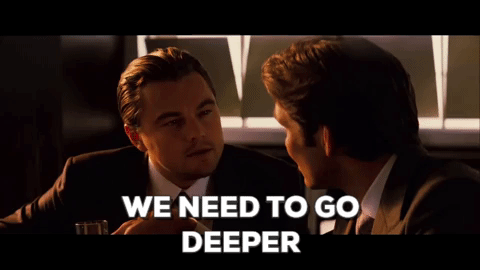
The following graphs collate organic listings from the first three pages of SERPs and illustrate the relationship between Domain Age and SERP Positions for each search phrase.
The legend is as follows:
Page 1 Results
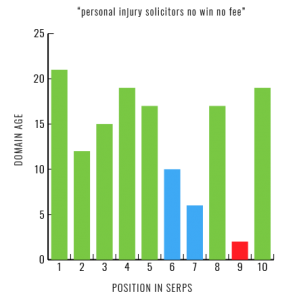

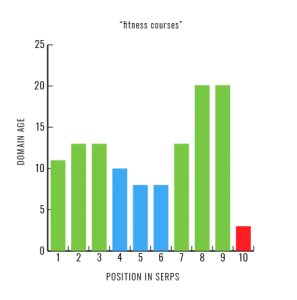
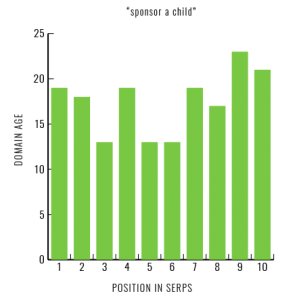
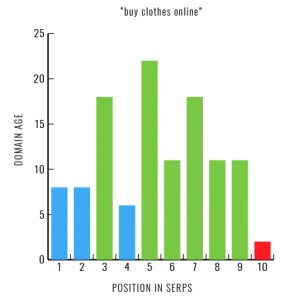
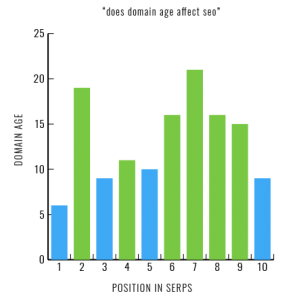
Oldest Domain Age: 23 years old
Youngest Domain Age: 2 years old
Page 2 Results
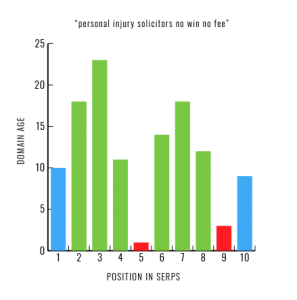
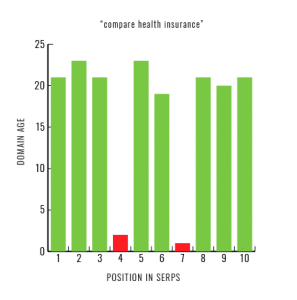
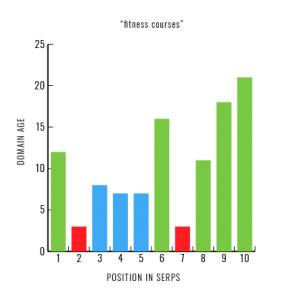
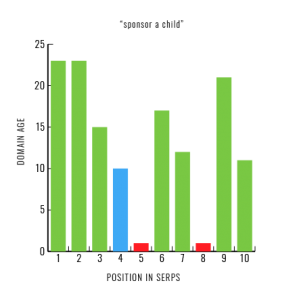
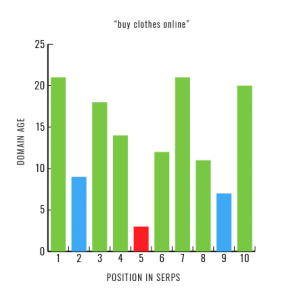
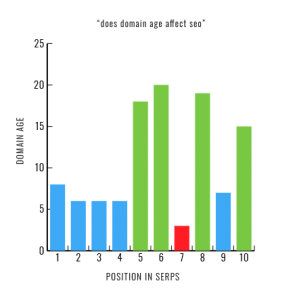
Oldest Domain Age: 23 years old
Youngest Domain Age: 1 year old
Page 3 Results
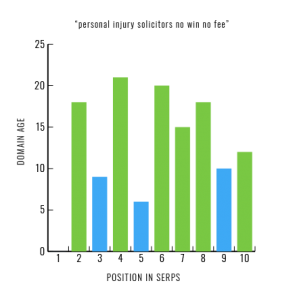

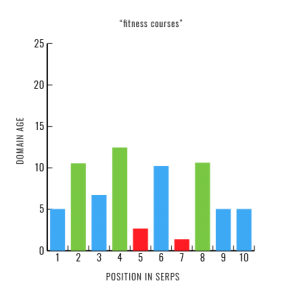
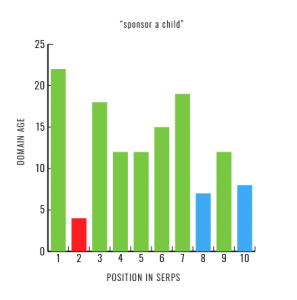
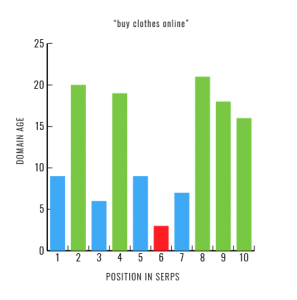
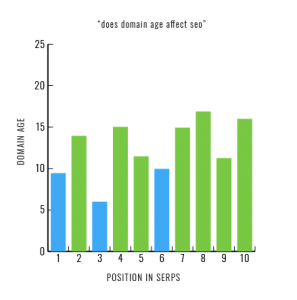
Oldest Domain Age: 23 years old
Youngest Domain Age: 0 years old
Findings
- Not every search term had a Baby Domain ranking on the first page
- The first 8 positions all seem to be Aged or Super Aged Domains
- The youngest domain to exist on page 1 was 2 years old
- In the instance a Baby Domain was found on the first page, it was only ever found towards the bottom of the page
- The second page of results all had at least one Baby Domain
What does this mean for you?
Although Google has insisted that they are delivering a more diverse set of search results, we can see that the top positions of page 1 are all dominated by established brands and suitably aged domains.
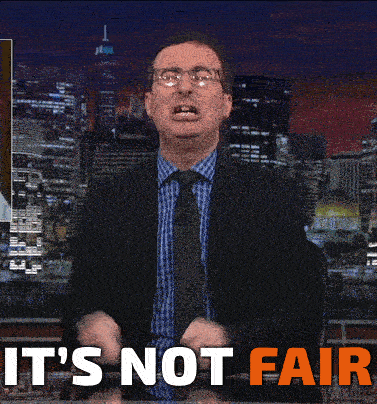
It makes sense from an SEO standpoint that big brands and aged domains will have naturally higher domain authority due to longevity.
However, there have been rising concerns from SEO experts and new website owners, due to all the changes Google has been making to the SERPs over the last couple of years.
With more featured snippets and Google Search Ads slowly engulfing above the fold results, this means there are less and less opportunities for new websites to be visible in search unless they have a sizable Pay Per Click budget.
So, if you have a website that is brand new or very young, don’t expect to rank at the top of Google search results for anything competitive.
Instead; focus on long tail search queries which are less competitive.
Furthermore; continue to work on building your brand and prepare a strong SEO foundation for your website so that when you’ve attained enough authority to be visible for those highly competitive search terms, you’re not left behind because you forgot the importance of relevancy and onpage optimisation.
